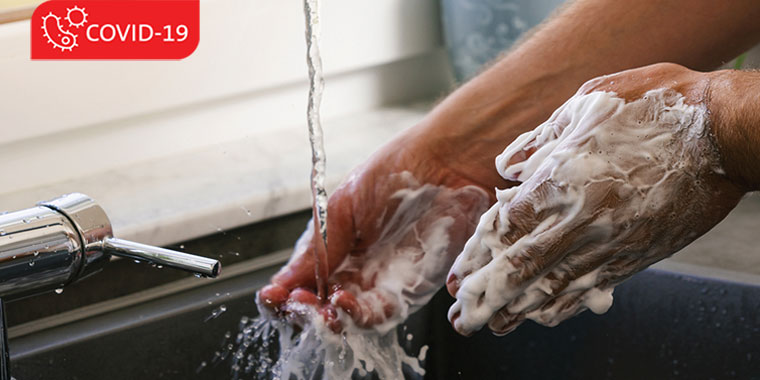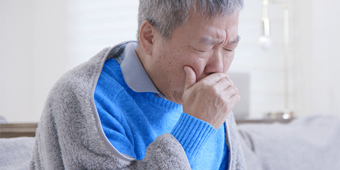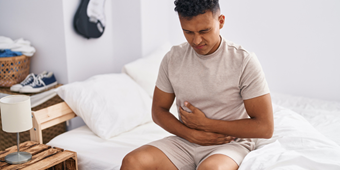Coronavirus COVID-19: Protection And Treatment

Answer a few questions and we'll provide you with a list of primary care providers that best fit your needs.
It’s important to understand how to protect and treat yourself as COVID-19, the infectious disease caused by the most recently discovered coronavirus, continues to spread. Premier Health Now asked Roberto Colón, MD, Premier Health Vice President of Quality and Safety, and Marc Belcastro, DO, Premier Health Chief Medical Officer, for advice.
Protection
Think of COVID-19 as you would the common cold. Both are strains of the coronavirus. Your protection strategies should be similar.
How To Protect Yourself
The best way to protect yourself is to avoid being exposed to the virus. That means if COVID-19 begins to spread in your community, putting distance (about six feet) between yourself and other people is your best protection, advises the Centers for Disease
Control and Prevention (CDC). The virus is thought to spread from person to person through respiratory droplets from coughs or sneezes.
“In addition, hand hygiene is one of the most important things you can do,” says Dr. Belcastro. “You can’t control everything you touch, but you can control what you do with your hands and keeping them clean.”
Properly washing and sanitizing your hands is crucial, adds Dr. Colón.
Equally important is disinfecting frequently touched surfaces including doorknobs, phones, keyboards, light switches, and tables. Per the CDC, use either:
- Homemade disinfectant by mixing one-third cup household bleach with one gallon water
- Alcohol solutions containing 70 percent or more alcohol
- Common EPA-registered household disinfectants
Joseph Allen, MD, family physician with Premier Health Family Medicine of Vandalia, adds that you should “make sure your immune system is in good shape. Stay as healthy as you can and keep conditions like diabetes and hypertension under control.”
How To Protect Others
You can protect your loved ones and help stop the spread of the virus by acting responsibly, says Dr. Colón. If you’re sick, stay home and isolate yourself from other people and pets. Call your doctor if you need advice. By leaving your home when
you’re sick, you’ll expose others to the virus.
“If you’re sick with the virus, wearing a surgical-type mask will help prevent the droplets from being released into the air and spreading the virus to others,” Dr. Colón explains. If you don’t have a mask, cover your
coughs and sneezes with a tissue or your elbow. Throw used tissues in the trash and immediately wash your hands.
Treatment
Treating COVID-19 is much like treating the cold or flu, explains Dr. Belcastro. There is no specific medicine to make it go away. Instead, Dr. Belcastro says, “If I learned I had been in contact with someone who has COVID-19 and came down with symptoms, I would remain
at home and take care of myself like I would the cold or flu. If I felt like I needed to see a physician, I would call my physician.
”Seeking emergency care is not necessary in most instances. “If you would not otherwise go to the emergency department or urgent care with cold or flu-like symptoms, don’t go if you think you have COVID-19,” advises
Dr. Belcastro. “This will help to control the spread.”
Need Medical Advice?
If you have questions regarding COVID-19, please call the Ohio Department of Health (ODH) hotline at (833) 427-5634. If you’re experiencing symptoms of COVID-19 (fever, cough, shortness of breath, flu-like symptoms), call your primary care provider.
Please do not go directly to your doctor’s office or emergency department without calling first, since many can isolate at home without being evaluated in person. Alternatively, Premier Virtual Care is available 24 hours a day, seven days a week, offering video chat with a health care provider from the comfort
of your home, minimizing the risk of exposure to yourself and others.
During your virtual care visit or call with your primary care office, our providers will use risk assessments based on guidelines from the Centers for Disease Control and Prevention and the World Health Organization to screen for COVID-19.
We assess for symptoms such as fever, cough, and shortness of breath. We will also ask you about your recent travel or contact with people who have been traveling or who may have the infection. While a diagnosis of COVID-19 cannot be confirmed virtually
at this point, our health care teams can evaluate your risk for the condition, answer your questions, and recommend next steps. If we suspect you are at medium or high risk for COVID-19, we will outline immediate treatment steps and refer you for
in-person care. If you are at low or no risk, the health care provider will work with you on home care or other treatments.
Learn More
For more information about COVID-19 visit:
Coronavirus COVID-19: Reviewing the Basics
Centers for Disease Control and Prevention
Answer a few questions and we'll provide you with a list of primary care providers that best fit your needs.
Marc Belcastro, DO, Premier Health Chief Medical Officer; Roberto Colón, MD, Premier Health Vice President of Quality and Safety; Joseph Allen, MD; Centers for Disease Control and Prevention






